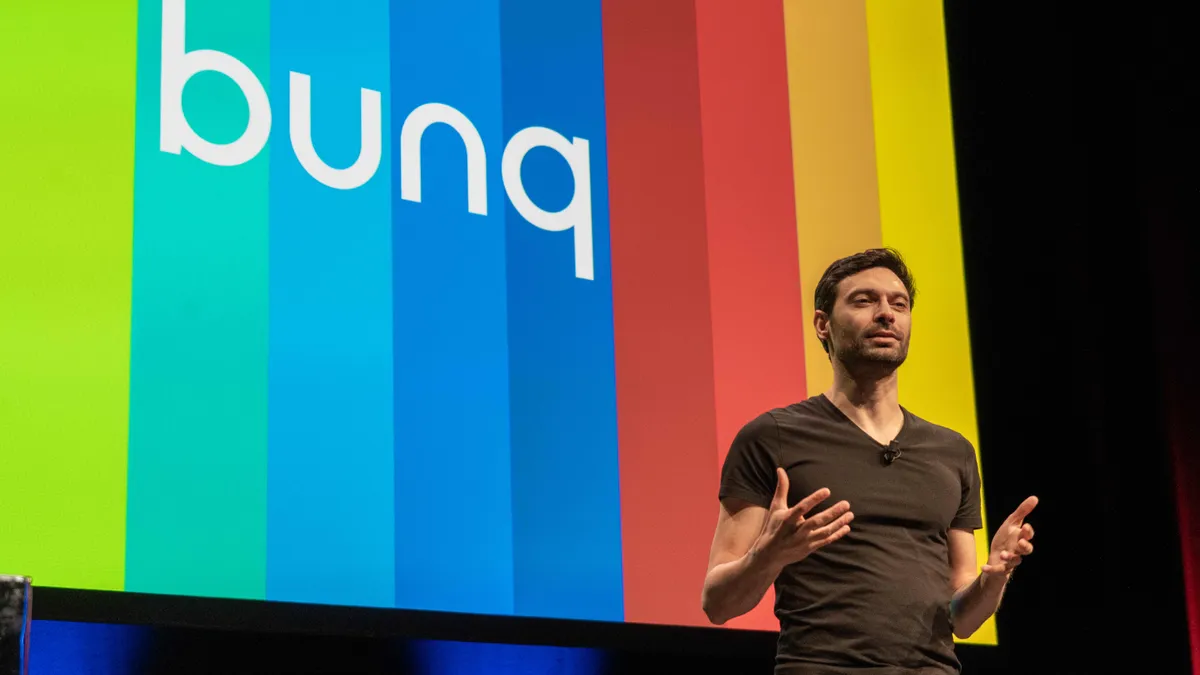Bunq on Tuesday became the latest neobank to fold generative artificial intelligence into its platform.
The Amsterdam-based fintech, which has applied for a U.S. banking license, said its generative AI tool, called Finn, is available to all 11 million of its users.
“Finn will wow you,” Ali Niknam, Bunq’s founder and CEO said in a statement. “Years of AI innovation, coupled with laser focus on our users, allowed us to completely transform banking as you know it. Seeing Generative AI make life so much easier for our users is incredibly exciting.”
Finn replaces the search function on Bunq’s app, the firm said in a release, allowing consumers to plan their finances, budget, navigate the platform and find transactions.
Users can ask questions or seek advice about their bank account and spending habits in Finn’s “chat-style text box” the company said.
The platform can tell users their monthly grocery spend or how much they spent in a year at specific retailers like Amazon, the company said.
“It can even combine data to answer questions that go beyond transactions, such as ‘What was that Indian place I went to with a friend in London?’, or ‘How much did I spend at the cafe near Central Park last Saturday?’” the company said.
With the launch of Finn, Bunq joins several other neobanks looking to leverage generative AI to improve the consumer experience.
Neobank MoneyLion, in May, said it plans to launch a search feature powered by ChatGPT that would allow consumers to search for transactions, offers and products on the platform’s finance marketplace.
Dave, a neobank and personal finance app this month launched DaveGPT, a generative AI-driven chatbot that can respond to customer inquiries in real-time.
CEO Jason Wilk said the tool, which replaces its DaveBot, is generating an 89% resolution rate.
Meanwhile, the launch of Bunq’s new AI tool comes as the fintech is looking to launch its platform to U.S. consumers. The firm in April submitted its application with U.S. bank regulators, as it attempts to break into a market that has proved a difficult one to crack for a number of its European counterparts.
U.K.-based Revolut, which launched in the U.S. in 2020, has been trying to secure a U.S. banking license since early 2021.
Monzo, another U.K. neobank, withdrew its application for a banking charter with the Office of the Comptroller of the Currency in October 2021 after it became clear the regulator likely would not approve it, the fintech told the Financial Times.
And Berlin-based N26 scaled back its plans to expand in the U.S. at the end of 2021, ending a 2½-year stateside push to woo U.S. consumers.











